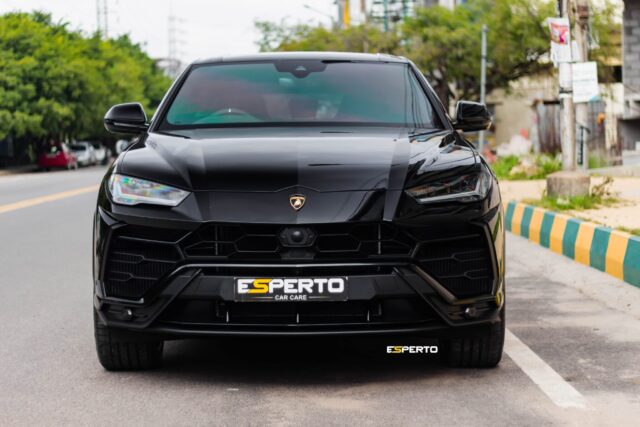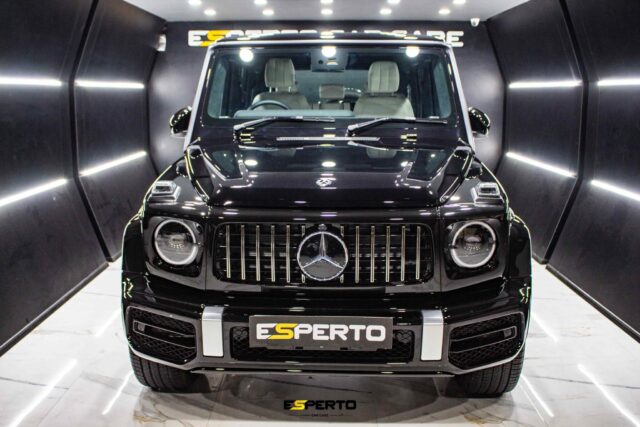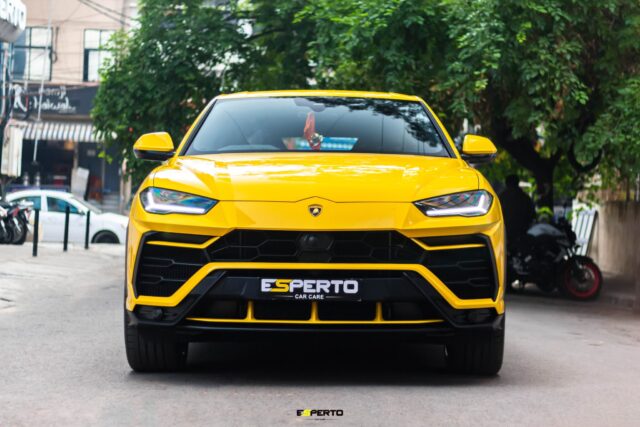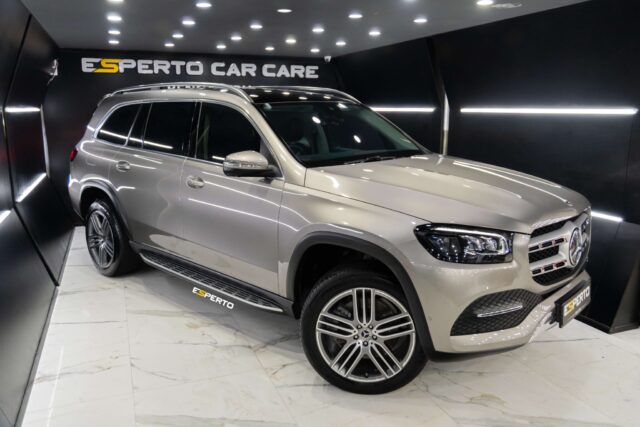Anti-rust coating greatly extends a vehicle’s lifespan by forming a protective barrier against corrosive elements like moisture and salt, particularly in humid or coastal environments. By preventing oxidation, it maintains the structural integrity and aesthetic appeal of the vehicle. This preservation decreases maintenance costs and bolsters resale value. long-lasting car care solutions, including anti-rust coatings, are essential for safeguarding your investment. Selecting appropriate coatings and timing their application strategically enhances these benefits, showcasing the importance of understanding options further for ideal vehicle care.
Key Takeaways
- Anti-rust coating acts as a barrier, protecting the metal surfaces from moisture and oxygen, preventing rust formation.
- It is essential for vehicles in humid or coastal environments, where rust risk is significantly higher.
- By preventing corrosion, anti-rust coatings maintain the vehicle’s structural integrity, enhancing its longevity.
- Regular application of anti-rust coating can reduce rust-related repair costs and maintain the vehicle’s aesthetic appeal.
- Selecting reputable service providers ensures effective coating application, maximizing the vehicle’s lifespan extension benefits.
What Is an Anti-Rust Coating for Your Car, and Why Does It Matter?
An anti-rust coating is a protective layer applied to a vehicle’s metal surfaces to inhibit oxidation and prevent corrosion, which is especially critical for new cars located in humid or coastal environments.
In such regions, heightened moisture and salt levels accelerate the corrosion process, compromising the structural integrity and longevity of the vehicle.
Why Is Anti Rust Coating Necessary for New Cars in Humid or Coastal Areas?
In regions characterized by high humidity or proximity to the sea, the necessity for anti-rust coating on new cars becomes particularly pronounced due to the accelerated rate of corrosion. Exposure to moisture in humid areas and coastal environments can lead to rust formation on a vehicle’s metal surfaces. An anti rust coating serves as a protective layer, effectively shielding these surfaces from corrosive elements. This preventive measure is vital for new cars, as it can greatly extend the lifespan of the vehicle by mitigating rust-related damages.
| Factor | Impact on Corrosion | Solution |
|---|---|---|
| Humidity Levels | Increased Rust Risk | Anti Rust Coating |
| Salt Presence | Accelerated Corrosion | Protective Layer |
| Metal Exposure | Surface Degradation | Corrosion Prevention |
| Vehicle Longevity | Reduced Lifespan | Extend the Lifespan |
| New Car Value | Decreased Resale | Protect Your Investment |
Implementing this strategy is essential in maintaining the vehicle’s structural integrity.
How Does an Anti-Rust Coating Protect Your Car’s Metal Parts from Corrosion?
While the interaction of metal with environmental elements such as oxygen and moisture can trigger oxidation, anti-rust coatings serve as an essential barrier that inhibits this chemical process.
The application of an anti-rust coating on a car’s metal surfaces provides thorough protection against rust and corrosion. By creating a protective layer, the coating effectively isolates the metal surfaces from corrosive agents, particularly in harsh weather conditions.
When car anti-rust coating is applied, it prevents rust by obstructing moisture and air from reaching the metal. Such coatings are specifically engineered to counteract the corrosion caused by environmental factors, thereby playing a significant role in extending the longevity of the vehicle’s metal components.
Ultimately, they protect from corrosion, ensuring durability and structural integrity.
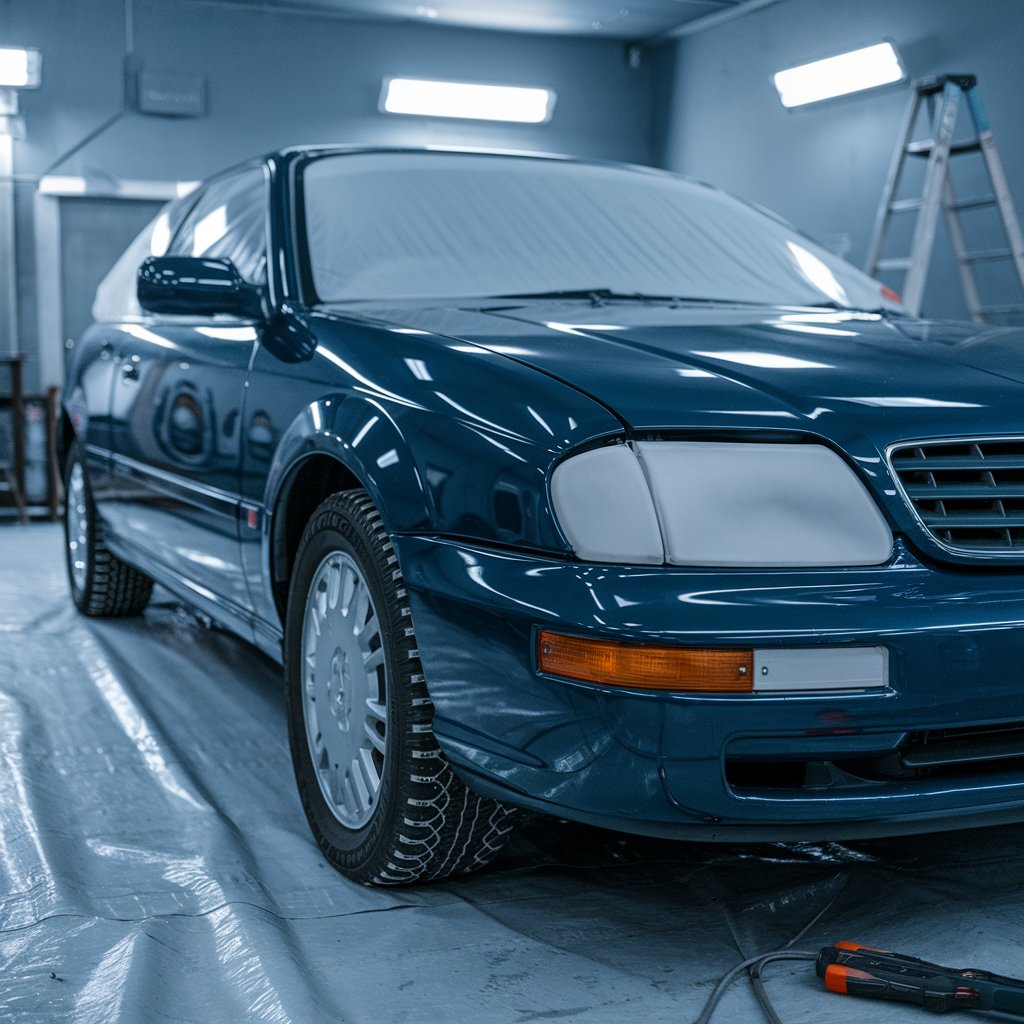
Which Car Anti Rust Coating Options Are Available Today?
The current market offers a variety of car anti-rust coating options, each designed to address specific vehicle protection needs.
These include traditional under coatings, electronic rust inhibitors, and specialized silencer coatings, with the latter being particularly distinct due to its focus on protecting exhaust components from corrosive elements.
Evaluating the necessity of a dedicated silencer anti-rust coating involves understanding its unique formulation, which aims to prolong the durability and performance of the vehicle’s exhaust system.
What Are the Different Types of Car Anti Rust Coating?
Car enthusiasts and industry experts alike recognize the importance of selecting the appropriate anti-rust coating to enhance vehicle longevity and maintain aesthetic appeal.
The application of anti-rust plays a significant role in car care by protecting the car body from rust and corrosion. For a new car, selecting the right treatment helps maintain optimal protection against rust and preserve structural integrity.
The following are the types of car coatings that offer anti rust coating solutions:
- Underbody Coating: Offers protection against road debris and moisture accumulation, particularly effective for wheel wells and undercarriage where rust starts most often.
- Electronic Modules: Utilize a small current to prevent rust formation on metal surfaces, acting as a modern preventive measure.
- Wax or Oil-Based Coatings: Ideal for treating existing rust, providing a barrier that inhibits further corrosion and naturally slows deterioration.
- Rubberized Undercoating: Provides a durable shield for the undercarriage, reducing road noise and ensuring long-term protection from rust.
By choosing the right anti-rust coating early, drivers can naturally extend the life of their vehicles and minimize long-term maintenance costs.
Is Silencer Coating Different from Other Anti-Rust Coatings for Cars?
How does a silencer coating compare to other anti-rust coatings available for cars today? Silencer coating specifically targets the exhaust system, a critical area prone to high temperatures and moisture, which accelerates rust.
Unlike general anti-rust coating for your car, which protects various surfaces from rust and corrosion, silencer coating focuses on maintaining ideal protection against rust for the silencer.
Service providers offer specialized coating services that cater to this distinct requirement. While the general anti-rust coating is applied to the car’s body and undercarriage, a silencer coating is designed to withstand extreme conditions unique to the exhaust.
Both coatings are essential for minimizing car repair costs and preserving vehicle integrity, yet their applications and formulations differ considerably.
Why Should You Consider a Dedicated Silencer Anti-Rust Coating for Your Car?
Considering the unique demands of a vehicle’s exhaust system, a dedicated silencer anti-rust coating emerges as a critical solution for maintaining long-term functionality and durability.
Silencer components are particularly vulnerable due to exposure to harsh weather conditions and road debris. Applying an anti-rust coating is necessary to protect your car’s metal surfaces from rust, which often starts in these neglected areas.
A strategic approach to car anti-rust coating can address specific car care needs effectively.
- Targeted Protection: Silencer anti-rust coating provides focused defence against corrosion.
- Durability Enhancement: Extends the lifespan of exhaust components by shielding them from corrosive elements.
- Performance Maintenance: Preserves the efficiency of the exhaust system.
- Cost Efficiency: Lowers expenses by minimizing frequent repairs and replacements and optimizing maintenance budgets.
How Much Does Car Anti-Rust Coating Cost Based on Vehicle Type?
The cost of car anti-rust coating is influenced by several factors, including vehicle type and the specific packages offered by service providers.
Different cars, such as SUVs and hatchbacks, may incur varying expenses for anti-rust treatments due to differences in size and surface area.
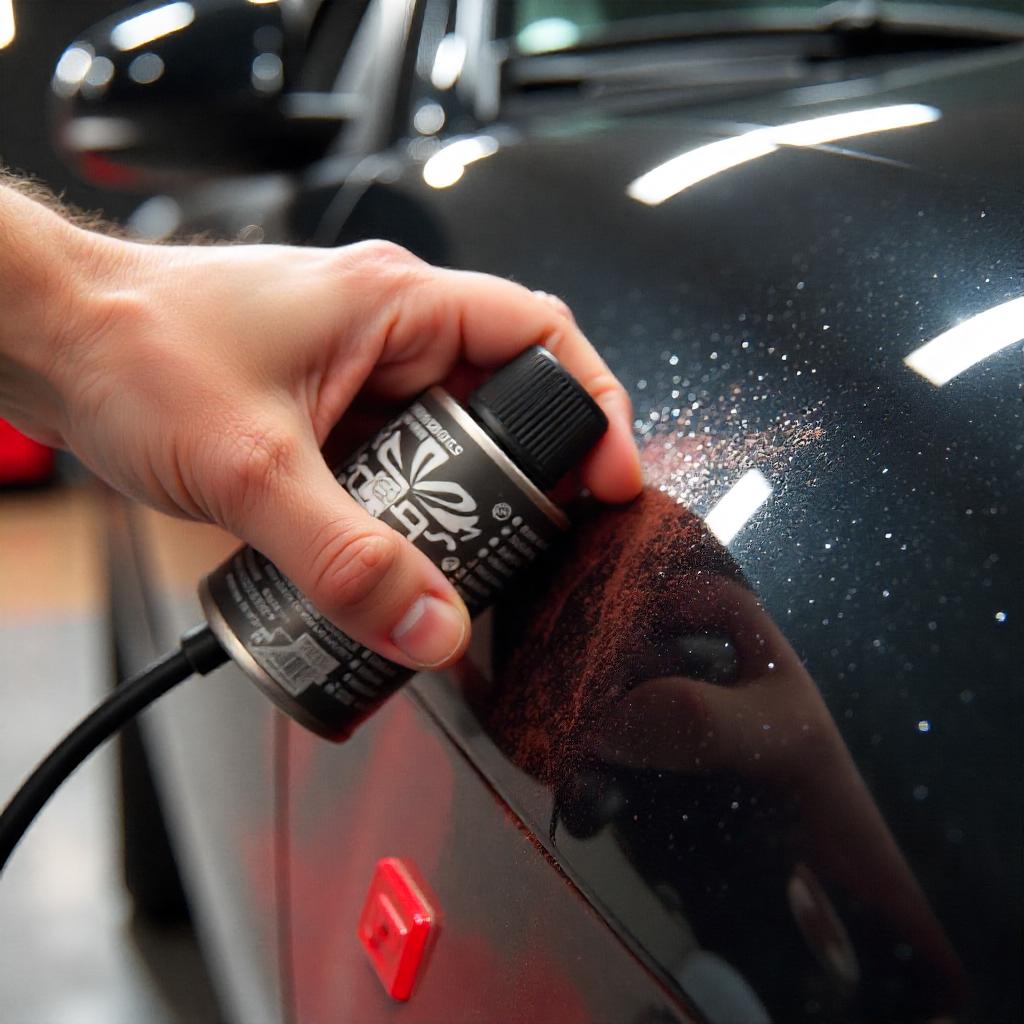
How Can You Get Services Cost by Cars for Anti-Rust Coating in Your Area?
When evaluating the cost of anti-rust coating services for cars in your area, several factors must be meticulously considered to guarantee an accurate estimate.
The pricing structure can vary considerably based on the following elements:
- Vehicle Type: Costs differ for various cars, impacting the overall expense of booking car anti-rust coating services.
- Service Packages: Packages available for antirust coating can range from basic to extensive, affecting the final price. Selecting the best package is essential.
- Provider Reputation: Companies that frequently offer car anti-rust coating services may have varied pricing based on expertise and quality.
- Scheduling: The timing of scheduling an anti rust coating service may influence cost, as peak times often incur higher charges.
Analyzing these factors aids in understanding the benefit of booking car anti rust coating services.
What Packages Are Available for Antirust Coating, and How Do They Differ by Car Type?
How do variations in antirust coating packages cater to different car types? Packages are differentiated by the specific needs of the vehicle, such as the application of anti rust underbody coating or body coating. For new cars, anti rust coating is necessary to maintain the vehicle’s integrity and value.
Providers diverse packages, allowing car owners to choose the best option tailored to their vehicle type. The preferred choice for car anti-rust often involves a combination of underbody and body coatings.
Each package offers cost savings by extending the lifespan of different car types. The coating applied varies based on the car’s exposure to environmental factors, ensuring that the anti rust coating necessary for cars meets individual requirements.
Does the Cost of Car Anti-Rust Coating Vary Between SUVs and Hatchbacks?
Why does the cost of car anti-rust coating differ between SUVs and hatchbacks? The variation in cost is influenced by several factors related to vehicle size and surface area. The coating on the car, specifically designed as a protective anti-rust treatment, is necessary to maintain ideal protection against rust.
The cost of cars varies due to these factors:
- Surface Area: SUVs typically require more coating due to larger surface areas compared to hatchbacks.
- Material Usage: Greater material consumption in SUVs leads to increased expenses.
- Labour Intensity: More intricate anti-rust treatment is necessary for SUVs, impacting labour costs.
- Application Complexity: Coating done on SUVs may involve more complex processes, resulting in higher costs.
Understanding these factors can clarify why cost discrepancies exist between vehicle types.
Can Anti Rust Coating Help Prolong the Life and Value of Your Car?
The application of anti-rust coatings on vehicles can greatly enhance resale value by mitigating corrosion, which is a primary factor in depreciation.
These coatings, typically requiring reapplication every few years depending on environmental exposure, provide a cost-effective strategy for extending vehicle longevity. Maintaining other areas, such as a clean car dashboard, also complements the overall upkeep, reinforcing the vehicle’s well-maintained condition.
Additionally, the long-term benefits of anti-rust treatments include improved structural integrity and sustained aesthetic appeal, contributing to prolonged utility and marketability of the vehicle.
Can Applying a Car Anti-Rust Coating Improve Your Vehicle’s Resale Value?
Applying an anti-rust coating to a car could greatly enhance its resale value by mitigating the deleterious effects of corrosion.
The anti rust coating for the car is useful as it acts as a barrier against oxygen and water, the primary catalysts of rust formation. This treatment for car surfaces is not only advisable for older models but is also considered necessary for new cars to prevent early signs of rust.
Regular car service that includes booking a car anti rust treatment guarantees the longevity of the vehicle. When considering a choice for car anti-rust coating, one must factor in its ability to improve the vehicle’s resale value.
- Anti-rust coating protects against corrosion.
- Essential for new cars to prevent rust.
- Regular treatments can extend vehicle lifespan.
- Enhances resale value considerably.
How Long Does a Car Anti Rust Coating Last Before Reapplication Is Needed?
How effective is an anti-rust coating in maintaining its protective qualities over time? The lifespan of an anti rust coating on new cars is contingent upon various factors that influence this, such as the coating quality, environmental exposure, and how well the vehicle is maintained.
Typically, an anti rust coating can last between two to five years before reapplication becomes necessary to guarantee peak protection.
Regular car care and inspection are essential to assess coating duration and effectiveness. Owners should evaluate their vehicle’s exposure to harsh conditions such as road salt or coastal environments, which can expedite coating degradation.
Timely reapplication of anti rust coating is integral to prolonging the lifespan of the vehicle, thereby maintaining its value and structural integrity through thorough vehicle maintenance practices.
What Are the Long-Term Benefits of Getting an Anti-Rust Coating for Your Car?
When considering the long-term benefits of an anti-rust coating for a vehicle, one must evaluate how it can substantively extend the car’s operational lifespan and preserve its market value.
An anti-rust coating, particularly in new cars, offers protective advantages that mitigate the need for frequent repair. The application of a high-quality coating, such as those provided by signifies a pivotal aspect of thorough car care.
The following benefits highlight the importance of scheduling such services:
- Extended Lifespan: Protects metal components from corrosion, enhancing durability.
- Reduced Repair Costs: Decreases the frequency and cost of rust-related repairs.
- Preserved Value: Maintains aesthetic and functional integrity, benefiting resale value.
- Cost-Effective Maintenance: Long-term service cost reduction with preventive measures.
Thus, the strategic application of anti-rust coatings is indispensable for vehicle longevity.
When and Where Should You Apply a Car Anti-Rust Coating?
Determining the ideal timing for applying a car anti-rust coating involves evaluating environmental factors and vehicle exposure to corrosive elements.
The decision to utilize dealership services versus specialized service centres necessitates an appraisal of expertise, cost, and warranty implications.
Identifying reliable local providers for anti-rust treatments requires a methodical review of service history, customer feedback, and industry certifications.
When Is the Best Time to Apply a New Car Anti Rust Coating?
Applying a new car anti-rust coating necessitates a strategic understanding of both timing and environmental conditions. The best time for application is essential to maximize vehicle lifespan and guarantee optimal protection.
- New Cars: As soon as possible post-purchase, an anti-rust coating is necessary to shield against initial environmental exposure, aiding in car care and extending lifespan.
- Seasonal Considerations: Ideally, schedule applications before winter, as road salt and moisture during colder months accelerate rust formation.
- Post-Repair: After bodywork or repainting, a fresh application is critical for maintaining consistent protection across new surfaces.
- Routine Maintenance: Incorporate anti-rust coatings into regular vehicle maintenance schedules to ensure continuous protection, particularly in high-humidity environments.
This strategic scheduling guarantees the vehicle remains protected, extending its functional lifespan.
Should You Opt for Anti Rust Coating at the Dealership or a Specialized Service Center?
Considering the ideal periods for applying anti-rust coating, the next logical step involves selecting the appropriate venue for this service.
When determining whether to choose a dealership or a specialized service centre, several factors merit consideration. Dealerships may offer the best package for your car care, as they often have access to manufacturer-specific treatments, ensuring your car’s longevity.
However, specialized service centres might provide more competitive rates, enabling one to get services cost by cars efficiently.
For new vehicles an anti-rust coating may be necessary for new cars, as protection is paramount immediately after the car is made. Experts recommend scheduling anti-rust applications during a convenient time slot for car repairs. Many service centres allow customers to book a car anti rust appointment easily.
Where Can You Find Reliable Anti-Rust Coating Services for Your Car Locally?
Manoeuvring the landscape of anti-rust coating services requires a methodical approach to identifying reliable local providers. A diligent analysis is paramount to ascertain if the anti-rust coating is necessary for new cars, with the primary benefit of booking car services being enhanced longevity and reduced maintenance costs.
Local providers can be evaluated based on several technical criteria:
- Reputation: Examine customer reviews and ratings to gauge reliability and service quality.
- Certifications: Verify the provider holds industry-standard certifications, confirming adherence to technical guidelines.
- Experience: Prioritize providers with a proven track record in applying effective anti-corrosion treatments.
- Pricing: Conduct a comparative pricing analysis to verify cost-effectiveness without compromising service quality.
These factors collectively verify a beneficial anti-rust application, safeguarding vehicle integrity.
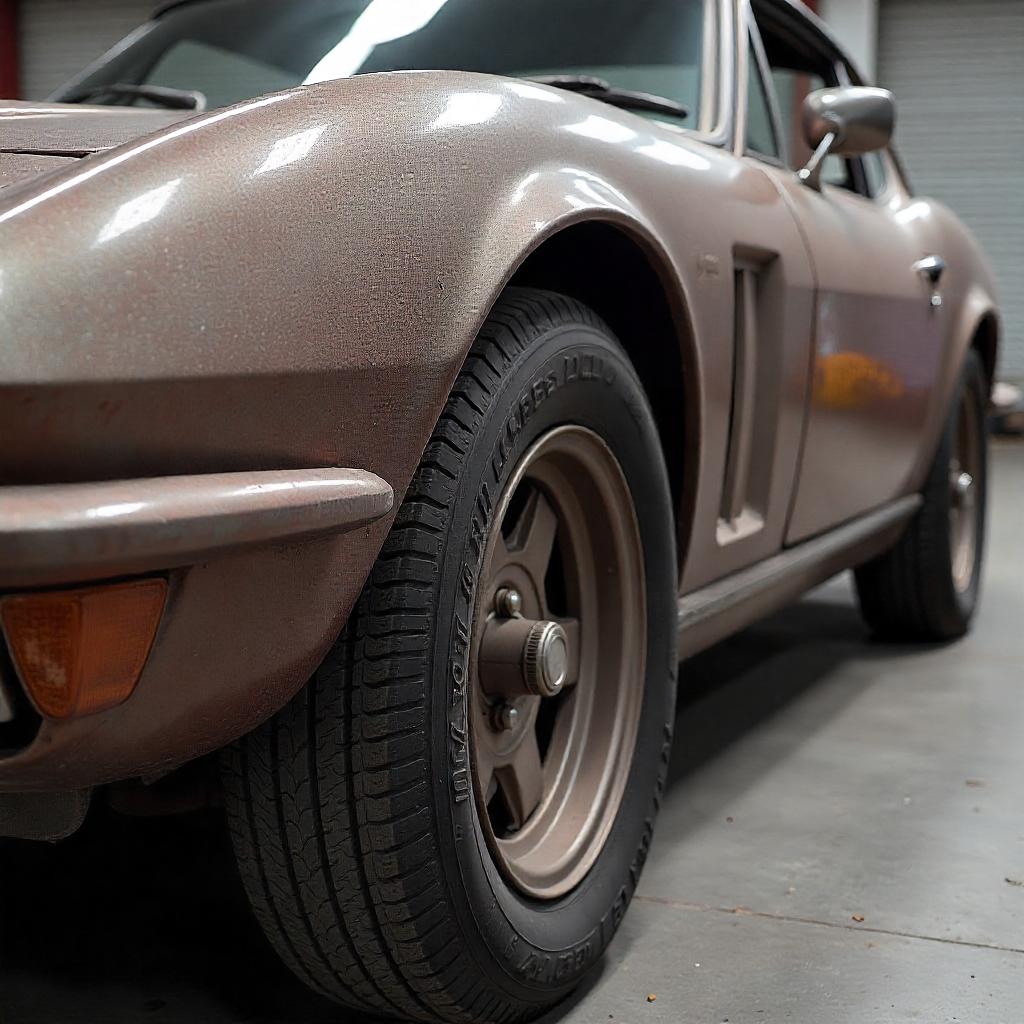
Conclusion
In summary, the application of an anti rust coating is a strategic measure that can greatly enhance a vehicle’s longevity and preserve its value. By providing a protective barrier against corrosion, these coatings mitigate the adverse effects of environmental elements. Various options, including wax, electronic, and permanent coatings, cater to diverse needs and budgets. Timely and appropriate application, preferably by professionals, guarantees peak efficacy. Ultimately, anti-rust coatings are a cost-effective investment in a vehicle’s long-term durability and performance.



